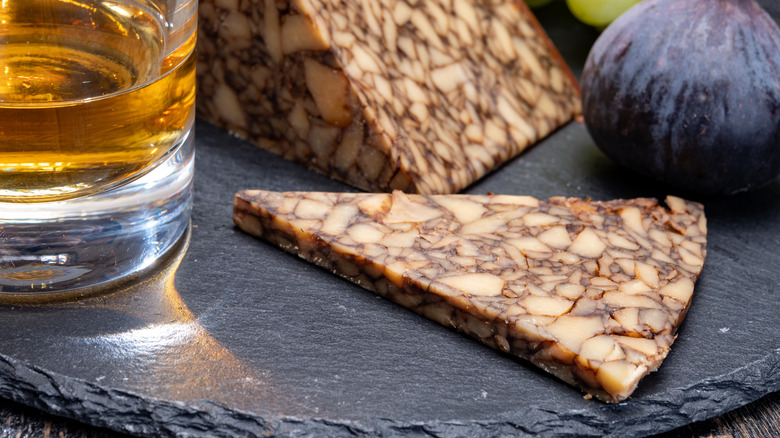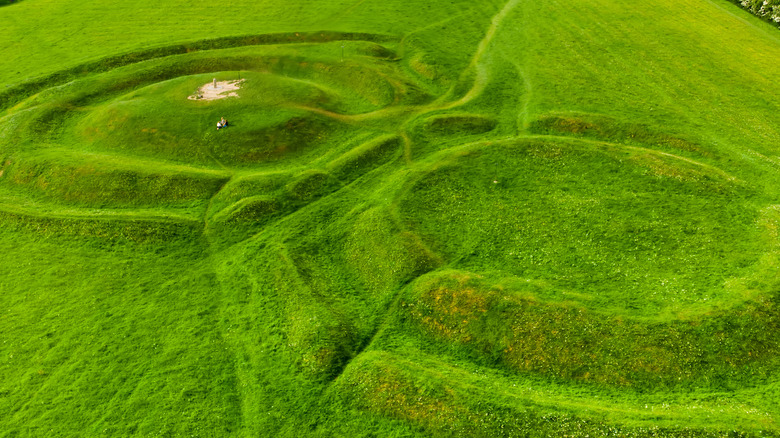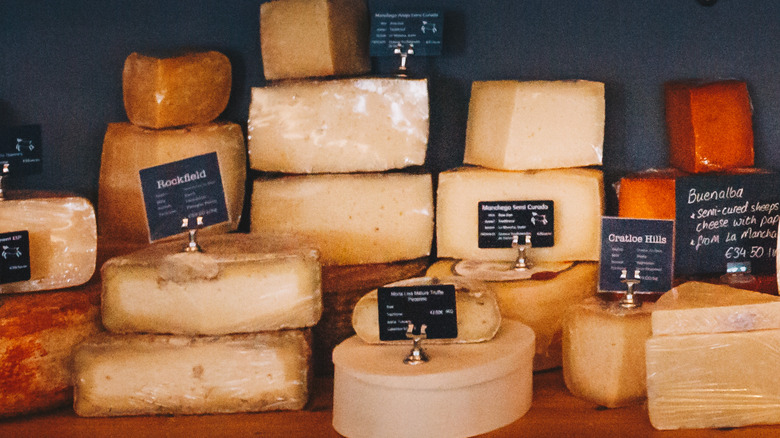Why Irish Cheeses Are So Unique
While every culture has its share of food-related stereotypes, the Irish seem stuck in a revolving door of misconceptions. No, native Irish don't do corned beef and cabbage on St. Patrick's Day. No, Irish people don't just eat potatoes. The world of Irish food is brilliantly diverse and brimming with enviable quality. This is especially true when it comes to Ireland's dairy products.
One such product is cheese. According to the National Dairy Council of Ireland, the rains and the green fields and the cows that graze them make Ireland perfect for dairy production (via YouTube). Irish chef Clodagh McKenna attributes part of the quality of modern Irish cooking to the evolution of the island's cheese. "Cheese producers have been at the forefront of the food revolution in Ireland," she says. "They've been coming up with new and creative cheeses. Now they are all becoming household names and they are really fantastic" (via Milwaukee Journal Sentinel). Part of what makes Irish cheese so unique is indeed the individuality of the producers, but also a history that stretches back centuries. And from an island so rich with history, it's only fair to begin our Irish cheese journey back when it all began.
Over a thousand years of cheese
While the Emerald Isle's modern cheese revolution is a relatively recent phenomenon, Ireland's history of cheesemaking stretches back more than a thousand years. According to the Irish Food Board, monastic records dating back to the 600s attest to Ireland's early developments in cheesemaking. It is even suggested that Irish monks exported their cheesemaking knowledge across Europe to places like St. Gallen and Münster, Switzerland. There is also the pre-Christian tale of Queen Maeve of Connacht, an ancient queen who was killed by a lump of hard cheddar that was fired at her from a sling (via Irish Central). Though a myth, it indicates that cheese was produced in Ireland well before the time of Christ.
Unfortunately, this artisanal, small-scale cheese production became lost over time. Sheridans Cheesemongers explains that Irish farmers began to use their excess milk to make butter instead of cheese. However, the early decades of the 20th century brought with them the beginning of what would be the revival of Irish cheesemaking. Production during this time was focused mainly on mass producing quality cheddars for Ireland and the United Kingdom, but things changed in the 1970s, when a renewed interest in small-scale, farmhouse cheeses began to take hold. Amateur, family-farm-based cheesemakers soon turned professional, honing their craft and making their cheeses available to a wider market. Nowadays, the Irish Food Board lists over 50 independent farmhouse cheesemakers across Ireland.
A cheese for every farm
Similar to how authentic Cornish Pasties can only come from Cornwall in the U.K. or how Parmigiano Reggiano can only come from Emilia-Romagna in Italy, so too Irish cheese can only come from Ireland. The Irish take things a step further, however. Instead of being tied down to an outside standard of making the same cheese the same way over and over, Irish cheeses are direct products of the whims of the farms on which they are made. According to Serious Eats, no rulebook exists in Irish cheesemaking. Farmers are allowed to be creative and individualistic, crafting cheeses influenced by the weather, the pasture, and their own personalities.
For a country only slightly larger than the entire state of West Virginia (via Irish Central), the Irish certainly produce a swath of diverse cheeses. From one island, you can find cheeses made from the milk of cows, goats, sheep, and even buffalo. You can find hard cheeses, soft cheeses, blue cheeses, an amazing assortment of cheddars, and bloomy cheeses with soft rinds. And that's just from the general guide listed by the Irish Food Board. Dropping a cheese lover in Ireland would be like leaving a sugar-mad toddler alone in a candy store. There's so much to choose from, so you may as well just sample it all.


